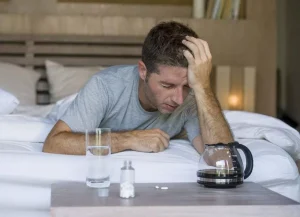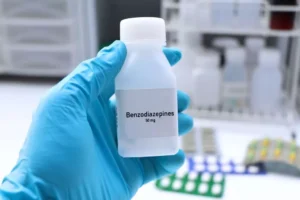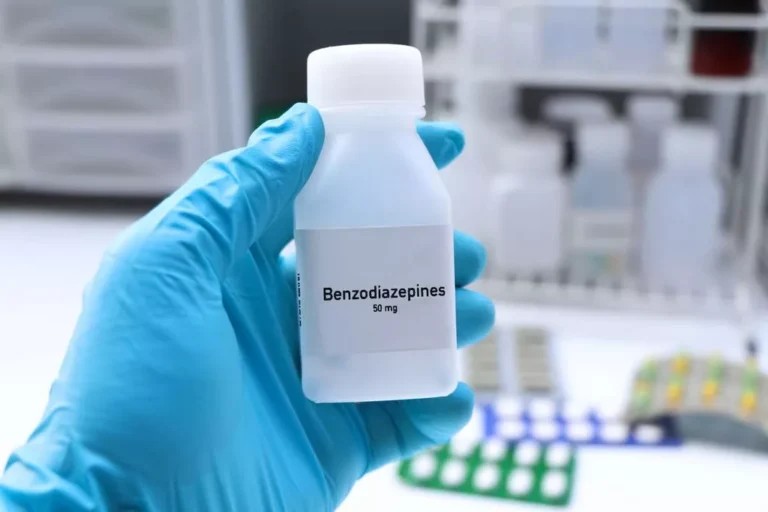
Feelings of guilt and shame are common in recovery, often tied to past actions or behaviors. Discussing these emotions in a group setting helps normalize these feelings and offers an opportunity to work through them together. Group members can share how they’ve addressed guilt and shame, providing support and empathy. Early recovery can be physically and emotionally draining and taking care of yourself is essential.
- It can be tempting to try to “snap them out of it” with threats, lectures, or even bribery.
- These connections become valuable sources of support during and after treatment.
- When a client shares their hesitations with you about group therapy, there are numerous benefits that you can discuss with them.
- By simulating real-life situations, people in recovery can practice effective coping strategies and communication.
- Discuss how treatments for physical illnesses – like broken bones or infections – are similar to treatments for psychological illnesses like addiction.
- Relapse rates for drug and alcohol use are comparable to those of other chronic diseases, such as hypertension and diabetes.
Mindfulness and Staying Present
Addressing co-occurring mental health issues is another crucial aspect of comprehensive addiction treatment. Many individuals struggling with substance abuse also grapple with conditions like depression, anxiety, or trauma. Group sessions can provide a supportive space to explore these interconnected challenges, offering strategies for managing symptoms and seeking appropriate professional help. Structured activities within these groups are highly effective in promoting personal growth, enhancing self-awareness, and building strong community bonds that can bolster resilience. In recovery, learning how to cope with stress, anxiety, and emotions without relying on substances is critical.
Effective Strategies for Helping Someone Get Sober

She has a Bachelor’s degree in Psychology and a Master’s degree in Social Work. With 17 years of relevant experience, she has helped several clients in their journey to recovery from addiction. CBT skills group is a course that teaches mindfulness, your emotions, and the interconnection of thoughts, feelings, and behaviors.
Substance Abuse Group Therapy Activities for Recovery

They can also help participants develop their communication skills and experience strength through vulnerability. These are less about telling you what to do and more about helping you find your own reasons to change. It’s like having a really good conversation with yourself, but with a group of cheerleaders egging you on. Our clients often ask group ideas for addiction recovery us these questions related to CBT group activities. Behavioral activation involves identifying and engaging in positive behavior.
- This can be done using a diffuser, or people can be offered a selection of different oils to find one that appeals to them to dab on their wrists.
- Participants can also share different coping skills that have worked for them, as well as what hasn’t worked.
- These sessions guide individuals in identifying their unique triggers, high-risk situations, and warning signs of potential relapse.
The use of group therapy activities for substance abuse can be a helpful tool in creating a safe and healthy group environment. Activities can encourage discussion when members may be reluctant or unsure of how to contribute to the conversation. Lastly, substance abuse group activities can provide group leaders with an opportunity to provide psychoeducation in an interactive way that members respond to. Connecting with nature can be deeply healing, and this experiential activity for group therapy combines physical activity with mindfulness. Participants take a walk in a natural setting, reflecting on their recovery journey as they move through the environment. Afterward, the group gathers to discuss their feelings and insights from the experience, fostering connection to both the self and the natural world.
- That’s why some recovery groups encourage members to bring candles, essential oils, and other aromatic materials.
- Healthy communication is key in expressing needs and building relationships.
- These groups help heal those ripples, creating a stronger support network for recovery.
- Members write words of support, advice, and encouragement to their past selves, helping them process regret and build self-compassion.
- In fact, AA’s 12 step program was found to be 60% more effective than other interventions for helping people get into recovery from alcoholism.

Learn about addiction treatment facilities that can meet your or your loved one’s needs by visiting AddicionResource.net today, or call us for assistance. This motivation and focus on achievement as a team act as positive reinforcements, reducing the risk of relapse by redirecting energy toward purposeful pursuits. Journaling serves as a powerful self-help mechanism, reducing the risk of relapse by providing an outlet for processing thoughts and emotions in a constructive manner. The sense of accomplishment and camaraderie fostered through these experiences can boost self-esteem and motivation in people in recovery. Art and other creative expression group activities provide people in recovery with an outlet for self-expression and emotional release. Social support is often instrumental in strengthening a commitment to sobriety and reducing the risk of relapse.
Key Tips for Choosing an Effective Recovery Slogan
Participants can also share different coping skills that have worked for them, as well as what hasn’t worked. Participants can try making gratitude lists or having open discussions on ways to find and show gratitude in daily life. Question balls are a resource that group leaders may use to get topics of conversation going.
The Role of Nutrition in Recovery
Setting short- and long-term goals gives people in recovery something to work for, but they can sometimes struggle with determining what those goals should look like. Learning to be present and mindful is a vital part of the recovery process. It supports well-being and helps prevent people from becoming overwhelmed or giving in to triggers.

This session discusses the importance of setting personal boundaries and provides strategies for communicating them effectively with others. Spirituality can provide a sense of purpose and inner peace in recovery for those interested. This session invites members to explore their spiritual beliefs—whether through mindfulness, religion, or connecting with nature—and discuss how these beliefs can support sobriety. Visualization is a powerful tool for building confidence and motivation. Guide members through a visualization exercise where they imagine themselves succeeding in recovery, reinforcing a positive outlook and boosting self-belief. Pairing members to practice active listening allows them to repeat and respond with empathy, strengthening mutual understanding and reinforcing the group’s supportive environment.

